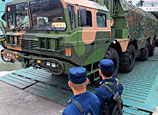
 |
| Poster (file photo) |
Movie censorship
More "professional" netizens have tried to go to the root of the problem. Shi Chuan, deputy chair of Shanghai Film Artist Association, thinks Chinese people's overall disapproval of government censorship is the real cause. Anytime news of a movie being re-edited or cut is made public, these people take issue with the system.
"The fact is that most people are not happy with movie censorship," Shi told the Global Times in a phone interview. He added that the cutting of Cloud Atlas is more due to the needs of the market, and certain foreign directors might not be satisfied with the new version, but their dissatisfaction is focused on the Chinese distributor, not the government. Though Shi also pointed out that the editing in Skyfall is a different story.
Shi's words about Cloud Atlas were confirmed in a response from Dreams of the Dragon Pictures, the Chinese distributor of the film. The company explained that the editing of the Chinese version was based on audience feedback from some 500 Chinese who watched the full-length North American version. The company believes the condensed version will not affect viewers' understanding.
Du Qingchun, an associated professor at Beijing Film Academy, does not think the posts on the Internet represent a majority opinion. He said, "In nations with censorship, the editing may be due to [political] ideology, and in nations with commercial environment, editing may be due to the needs of business. In China, both exist." As for the latter concern, running time for Cloud Atlas is 172 minutes uncut - enough to affect the number of per-day screenings at your local multiplex.
Shi Chuan further stated a rating system would save the government from the current dilemma. Without a rating system, people of all ages can enter the theater. If film regulators do not cut or re-edit scenes, young viewers may be negatively influenced. But as soon as they do edit a film, "adult audiences are unhappy about it," Shi said, "This situation does not happen in areas with a rating system, like Taiwan and Hong Kong."
It's all about the DVDs
While a number of film industry insiders have proposed a rating system for Chinese movies, a US scriptwriter who has lived in China for four years and asked to remain anonymous stated that a simple rating system cannot solve the problems the Chinese authorities face at the moment.
"Think of the Chinese government as an over-protective parent," he said, "They know they can't control the pirated DVDs so there is no point in implementing a rating system. People would still be able to watch whatever they want." Instead, he explained, the regulator places restraints on the creative process so that nothing offensive to mainstream Chinese values can be created in the first place.
The system serves the government well when it comes to controlling the output of the domestic industry. But when a cut version of an ultra-popular Hollywood blockbuster enters the market, cries of protest ring out loud and clear because the audience finally knows what it's missing.

















 A Taiwan student's adventure in Beijing
A Taiwan student's adventure in Beijing


![]()
